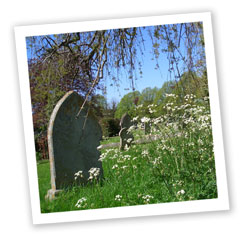|
|
putting the ecology into ecoisland
Find out more
All local authorities have a statutory obligation to conserve biodiversity:
“Every public authority must, in exercising its functions, have regard, so far as is consistent with the proper exercise of those functions, to the purpose of conserving biodiversity.”
Natural Environment and Rural Communities
(NERC) Act 2006 s.40
Guidance for Town and Parish Councils
External Links
Guidance for Local Authorities on Implementing the Biodiversity Duty
EcoIsland
Biodiversity means all living things and their habitats - and the Isle of Wight Council has a commitment to looking after them.
It’s tempting to rest on our laurels and imagine that our red squirrels, bluebell woods, rolling green downlands and breathtaking coastlines look after themselves – but in fact managing wildlife and habitats is an important part of EcoIsland.
There's now a legal duty on all public authorities including local authorities, central government departments, executive agencies, non-departmental public bodies, regional government offices, non-ministerial departments, NHS Trusts, regional assemblies, utilities and all other bodies carrying out functions of a public character under a statutory power to consider biodiversity. Public authorities can make a significant contribution towards the ongoing work to halt biodiversity loss.
 The Natural Environment and Rural Communities Act 2006 contained a new duty for local authorities. It says that every public authority must have regard to the purpose of conserving biodiversity.
The Natural Environment and Rural Communities Act 2006 contained a new duty for local authorities. It says that every public authority must have regard to the purpose of conserving biodiversity.
“Every public authority must, in exercising its functions, have regard, so far as is consistent with the proper exercise of those functions, to the purpose of conserving biodiversity.”
Natural Environment and Rural Communities
(NERC) Act 2006 s.40
Incorporating consideration of biodiversity into our service to the public can be at the highest level – for example in setting high ecological standards for new developments; as well as in the simplest of tasks, for example mowing a meadow less frequently. It’s also a popular way to improve services at little cost - or even save money.
| home | partnership | habitats | species | biodiversity opportunity areas | benefits of biodiversity |
biodiversity & you | advice | walks & events | library | contact |